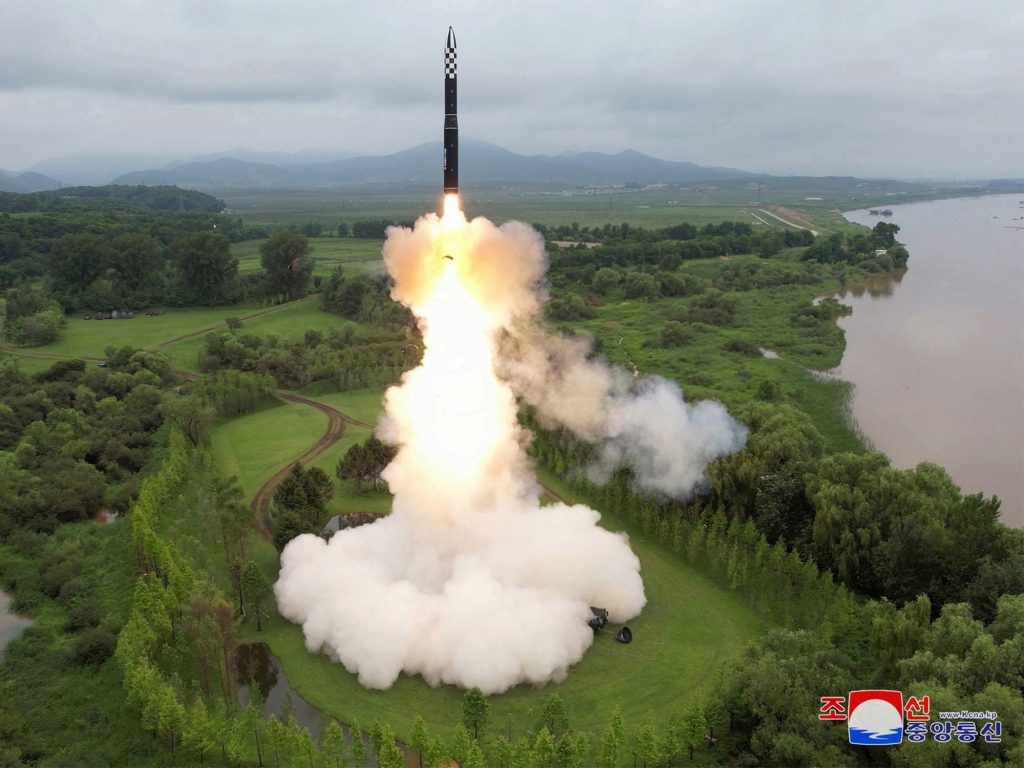Iran Uses Civilian Companies to Cover Up Ballistic Missile Development, Circumvent Sanctions
FIRST ON FOX — In a strategic maneuver to evade international sanctions, Iran is reportedly repurposing its commercial sector to disguise its ballistic missile development programs, converting civilian enterprises into fronts for questionable military pursuits.
The Covert Strategy Behind Missile Development
Recent intelligence from within Iran’s regime, including insights from members of the Islamic Revolutionary Guard Corps (IRGC) and the Iranian resistance group, the People’s Mojahedin Organization of Iran (MEK), indicates a systematic approach to enlisting innocent civilian workers in Tehran’s military ambitions. These findings were echoed in a report from the National Council of Resistance of Iran (NCRI), which was shared exclusively with Fox News Digital.
As tensions escalate between Iran and the West—partly fueled by Iran’s support for Russia’s military actions in Ukraine and its hostile engagements against Israel—the report highlights a concerning trend where civilian industries such as oil, gas, petrochemicals, and electronics are integrated into Tehran’s missile and drone development initiatives.
Iranian Companies Involved in the Military Complex
The NCRI’s investigation has spotlighted several Iranian firms deemed instrumental in producing components for Iran’s missile and drone programs. Notably among them are Kaveh Mobadel Industrial Co. (also known as Kaveh Machinery Co.), Sanaye Garma Gostar (commonly termed Garma Gostar Industries), and Sana Bargh Tavan Co. (SBT Electric).
Alireza Jafarzadeh, deputy director of the NCRI’s U.S. office, remarked, “The Iranian regime’s missile program extends far beyond the known military sites operated by the IRGC Aerospace Force or the Ministry of Defense. It has developed a sophisticated network of commercial companies to obscure the true scope of Tehran’s missile and drone programs while evading sanctions and international accountability.”
While Fox News Digital was unable to acquire comments from these implicated companies, internal sources allege that these firms face inspections from the Iranian Ministry of Defense and frequently hold contracts with the IRGC. Interestingly, while executive-level personnel seem to understand the dual-use nature of their production, they deliberately keep employees uninformed regarding the military context of their work.
Civilian Industries as Military Fronts
The NCRI asserts that suspicious production lines within these companies raise significant concerns about their actual operations. For example, aluminum tanks allegedly purposed for the dairy sector have been categorized as dubious, especially considering that aluminum is typically prohibited for such use. This anomaly implies that the materials might in fact be aimed at supporting Tehran’s missile or drone initiatives.
Another firm, Sana Bargh Tavan Co., situated in Pardis Technology Park, was called out for ostensibly developing electronic components for common applications, while it is said to be secretly producing electronic boards for missiles and drones disguised as civilian products. Reports suggest that access to this facility is under stringent IRGC surveillance, with visitor entry tightly regulated.
Sanctions: A Persistent Yet Incomplete Deterrent
Despite ongoing sanctions from the U.S., the U.K., and the European Union designed to limit Iran’s missile and drone advancements, Tehran has shown a remarkable ability to navigate around these restrictions. Notably, U.N. sanctions outlined in Resolution 2231 which restricted Iran’s import and export of missile and drone technologies officially lapsed in October 2023. Although such measures might have hindered Iran’s progress in the past, they have not fully curbed its military ambitions.
“The Iranian regime has placed significant emphasis on expanding its missile program,” Jafarzadeh explained. “This serves two main purposes: arming its regional proxies like Hezbollah and, more strategically, developing missiles capable of carrying nuclear warheads.”
The international community has long condemned Iran’s missile program, which the United States labeled “one of the greatest challenges to international nonproliferation efforts” in 2022. This prompted several rounds of targeted sanctions. In a recent move, the U.K. and EU imposed new sanctions aimed specifically at Iran’s shipping industry, which is believed to have facilitated the transit of drones and missiles.
Connections Between Missile Exports and Global Conflicts
Iran has consistently denied allegations of supplying Russia with missiles or drones for use in the conflict in Ukraine. However, substantial evidence links Iranian-manufactured Shahed drones to strikes targeting Ukrainian soldiers, civilians, and infrastructure, showcasing the detrimental impact of these weapons. Such developments have further strained Iran’s already complicated relationships with Western nations, which are increasingly intent on countering Tehran’s military objectives.
In conclusion, Jafarzadeh asserted, “The Iranian regime’s reliance on missiles is driven by its lack of airpower and effective air defense capabilities. This reality underscores the broader threat posed by Tehran as it advances its regional and strategic aspirations.”
As Iran continues to manipulate civilian sectors to mask its military pursuits, the need for international vigilance and action becomes increasingly urgent.
This HTML article presents the information in a structured manner with headings, paragraphs, and a clean, readable style. It encapsulates the original content while expanding on various points to meet the word count requirement.
